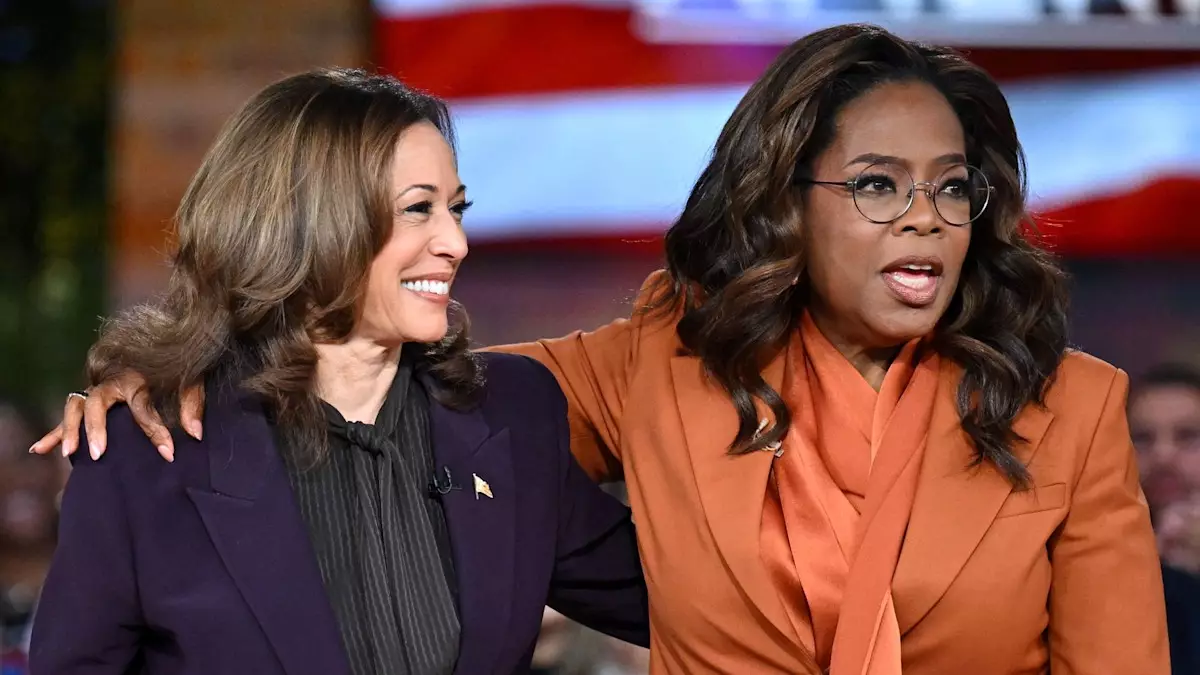The recent political landscape has been tumultuous, particularly following the election cycle that culminated in Donald Trump’s triumph. Amid this backdrop, rumors began to swirl concerning the financial dealings between Oprah Winfrey and then-presidential candidate Kamala Harris. Reports claimed that Winfrey had received a substantial payment for her supportive appearances during Harris’s campaign. However, in a series of direct statements, Winfrey has taken it upon herself to dispel these allegations, underscoring the integrity of her endorsement.
Dissecting the Allegations
The crux of the rumors insinuated that Winfrey was paid upwards of $1 million for her involvement in Harris’s campaign, an assertion that she has vehemently rejected. In addressing queries from media outlets like TMZ, she stated unequivocally, “Not true. I was paid nothing, ever.” This declaration not only addresses the monetary aspect of her support but also highlights a broader issue regarding the ethics of political endorsements. The notion that a figure of Winfrey’s stature could be bought to lend her name to a candidate questions the authenticity of public endorsements, a scenario that Winfrey adamantly rebuffs.
Her invitation to provide assistance for the campaign was not driven by financial gain but rather by a genuine interest in her candidate’s values and vision. Winfrey illustrated her commitment by elaborating on her logistical contributions during her appearances. She pointed out that her production company, Harpo, was responsible for organizing the necessary aspects of a live-streamed event—a job requiring significant resources and manpower.
Winfrey’s proactive stance in clarifying these rumors reflects a growing necessity for public figures to defend themselves against misinformation. The digital era, while enhancing the spread of information, has also facilitated the rapid dissemination of false claims. In one of her social media responses, Winfrey emphasized the need to confront such misinformation: “Usually I am reluctant to respond to rumors in general, but these days I realize that if you don’t stop a lie, it just gets bigger.”
This highlights an essential point in communication strategy—public figures owe it to their followers to set the record straight when inaccuracies arise. Winfrey’s candid handling of the situation serves as an example of how transparency can foster trust between public figures and their audiences.
Deconstructing Financial Speculations
As if the claims surrounding Winfrey’s support weren’t enough, additional reports surfaced regarding Harris’s campaign finances. Allegations circulated that employees of the Harris-Walz campaign had not received their final paychecks, which were subsequently addressed and disproven. In a response from a staff member, Marcus Vusovich articulated an important truth: “We get paid on the 15th and we have 2 weeks of severance.” This situation underscores the critical importance of verifying information before sharing it, especially in a politically charged environment where misinformation can cloud public perception.
Kamala Harris’s concession speech also marked the conclusion of an extraordinary chapter in American political history, one characterized by significant momentum toward diversity and representation. Speaking at Howard University, she acknowledged the disappointment surrounding the election results but remained resolute in her commitment to the ideals that her campaign represented. This dichotomy between concession and perseverance—a hallmark of democratic engagement—illustrates the enduring struggle for equality.
In her closing remarks, Harris declared, “While I concede this election, I do not concede the fight that fueled this campaign.” This echoed Winfrey’s own sentiments regarding the intrinsic values of fairness and justice, reinforcing the notion that political battles are not merely won or lost in terms of elections but are part of a broader narrative fighting for civil rights and dignity.
Ultimately, Oprah Winfrey’s explanation of her support for Kamala Harris helps to dissect the complex relationship between celebrity and politics. The public often assumes that endorsements come with strings attached, yet Winfrey’s actions exemplify a commitment to principles over financial incentives. As the political landscape continues to evolve, the necessity for clarity and honesty in the discourse surrounding public endorsements will remain crucial for the integrity of political processes.

